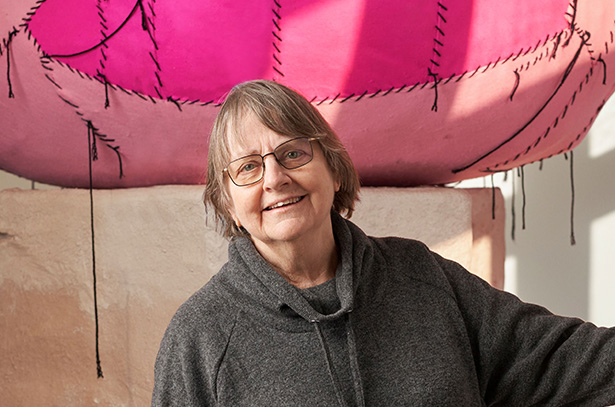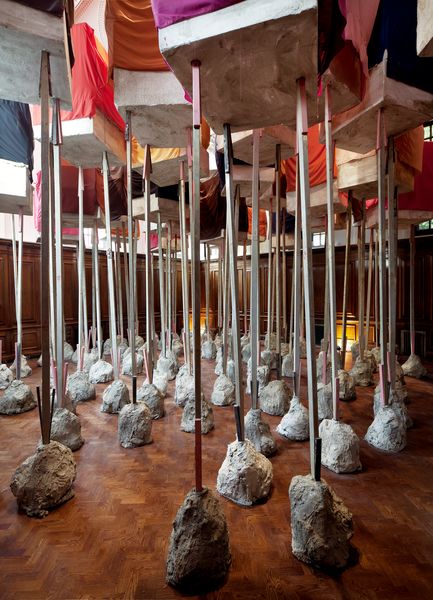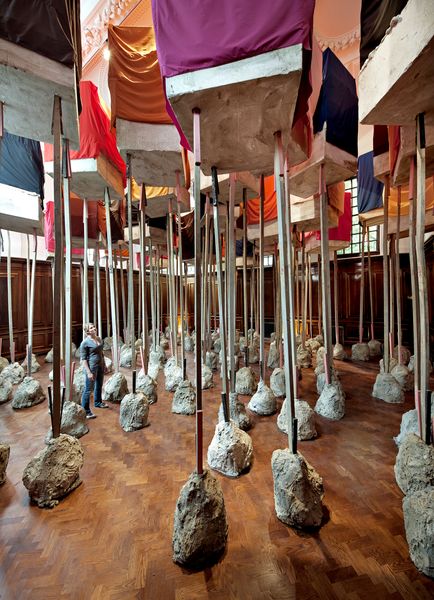
Phyllida Barlow
RIG
2 September - 22 October 2011
London
Installation views
About the Artist

Phyllida Barlow
For almost 60 years, British artist Phyllida Barlow took inspiration from her surroundings to create imposing installations that can be at once menacing and playful. She created large-scale yet anti-monumental sculptures from inexpensive, low-grade materials such as cardboard, fabric, plywood, polystyrene, scrim, plaster and cement. These constructions were often painted in industrial or vibrant colors, the seams of their construction left at times visible, revealing the means of their making.
Barlow’s restless invented forms stretch the limits of mass, volume and height as they block, straddle and balance precariously. The audience is challenged into a new relationship with the sculptural object, the gallery environment and the world beyond.
‘There’s something about walking around sculpture that has the possibility of being reflective, like walking through a landscape,’ Barlow has said. ‘The largeness of sculpture has that infinite possibility to make one engage beyond just the object itself and into other realms of experience.’
Barlow exhibited extensively across institutions internationally and in 2017 represented Britain at the Venice Biennale.
Current Exhibitions
1 / 11
































